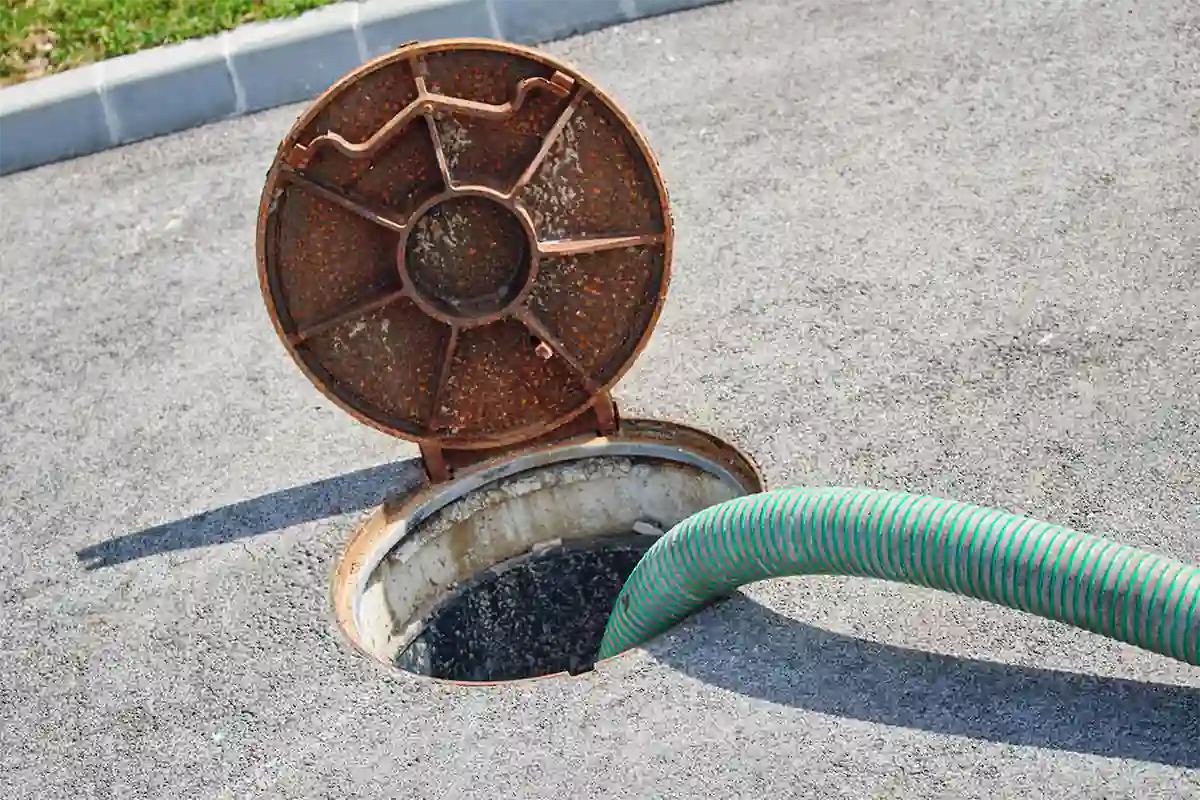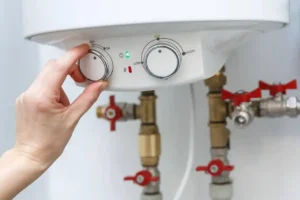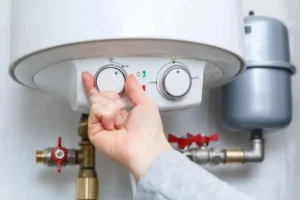Septic tank maintenance is crucial to ensuring the health and longevity of your system. Proper care helps avoid costly repairs and unpleasant backups, which can cause significant damage to your property and disrupt your daily life. Regular septic tank pumping not only prevents malfunctions but also contributes to a cleaner, healthier environment by reducing pollution risks. In this guide, we will break down the optimal septic tank pumping frequency based on household size, usage, and other key factors, so you can maintain a smoothly running septic system for years to come.
The Importance of Regular Septic Tank Pumping
Routine septic tank pumping ensures your tank functions efficiently, avoiding clogging and unpleasant odors. Without regular maintenance, solids build up in the tank, reducing its ability to treat waste and potentially causing system failures. Timely pumping helps save on expensive repairs and extends the lifespan of your septic system.
Benefits of Timely Maintenance
Pumping your septic tank regularly prevents overflows, backups, and system malfunctions. Timely maintenance minimizes the risk of costly repairs, improves system efficiency, and reduces the environmental impact caused by untreated wastewater. A well-maintained septic system can last up to 40 years, making regular pumping a wise investment for homeowners.
What Happens if You Don’t Pump Your Septic Tank Regularly?
Neglecting septic tank pumping can lead to significant issues that disrupt your daily routine and create costly repairs. When your tank is not pumped regularly, solids accumulate, reducing the tank’s capacity to filter waste. Eventually, this buildup can clog pipes, causing sewage to back up into your home or leak into the surrounding environment.
Risks of Skipping Pumping: System Failures and Costly Repairs
If you ignore your septic system, it can break down, leading to system failures that may require expensive repairs or even full replacements. Clogged pipes, leaks, and overflows not only affect the functionality of the tank but also harm your property and can require costly professional intervention. Keeping up with regular pumping can prevent these expensive problems.
Health and Environmental Hazards
Failing to pump your septic tank leads to untreated wastewater, which can contaminate the soil and groundwater, posing serious health risks. A malfunctioning septic system can cause unpleasant odors and create a breeding ground for bacteria, leading to unsafe living conditions for your family and your community. Regular pumping helps ensure that your system remains functional and environmentally safe.
How Often Should a Septic Tank Be Pumped?
The general rule for septic tank pumping is every 3-5 years, but this can vary based on several factors such as household size, water usage, and the type of septic system you have. A smaller household may need less frequent pumping, while a large family with high water usage may require more frequent maintenance.
General Guidelines for Pumping Frequency
For most households, pumping every 3-5 years is sufficient. However, certain factors can affect this schedule. If your tank has a smaller capacity or you have a larger household, you may need to pump it more frequently. Regular inspections help you track when your system needs maintenance based on usage patterns.
Key Factors Affecting Pumping Needs
Several key factors determine how often your septic tank should be pumped. The size of your tank, how much water your household uses, and the type of system (conventional or aerobic) all influence pumping frequency. For example, a household with a water-saving lifestyle might require pumping less frequently than a home with high water usage.
Tank Size
Larger tanks generally require pumping less often, while smaller tanks need to be pumped more frequently due to limited capacity. Knowing the size of your tank can help determine how often you should schedule pumping.
Water Usage
Homes that use a lot of water, such as large families, will need their septic tanks pumped more frequently. More water usage means more solids and waste in the system, which accelerates the need for pumping.
Type of System
Different septic systems, such as traditional or aerobic treatment units, may have different maintenance requirements. Aerobic systems, for example, often need more frequent maintenance and inspections compared to conventional systems.
How Household Size Affects Septic Tank Pumping Frequency
The size of your household plays a significant role in determining how often you need to pump your septic tank. Larger families generate more waste and consume more water, which can cause the tank to fill up faster, requiring more frequent pumping. Smaller families, on the other hand, tend to have less waste and will likely need pumping less often.
Adjusting Pumping Frequency Based on Family Size
If you have a smaller household, you may only need to pump every 3-5 years. Larger households may need to pump more frequently, perhaps every 2-3 years, due to higher water usage and waste production. Pay attention to your septic tank’s health and inspect it regularly to adjust pumping schedules as needed.
Septic Tank Pumping Frequency for Different Household Sizes
How Often to Pump Septic Tank for a Family of 1
For a single-person household, septic tanks generally need pumping every 3-5 years. The lower water usage means less waste accumulation, allowing for a longer pumping schedule. However, it’s still important to monitor your system regularly to avoid potential issues.
How Often to Pump Septic Tank for a Family of 2
A family of two typically needs to pump their septic tank every 3-4 years. Water usage is still relatively low, but regular pumping is essential to prevent solids from building up. It’s a good idea to inspect your tank every few years to keep track of its condition.
How Often to Pump Septic Tank for a Family of 3
For a family of three, septic pumping is often needed every 2-3 years, depending on water usage and waste volume. Regular inspections can help determine the best time for pumping, as the tank will fill up faster with more occupants.
How Often to Pump Septic Tank for a Family of 5
A family of five typically requires pumping every 2-3 years. Increased water usage means the tank will fill up faster, so it’s essential to schedule pumping more frequently. Regular monitoring helps avoid system overflows and ensures your septic system remains in good condition.
How Often to Pump Septic Tank for a Family of 6
Larger families, like those with six members, should consider pumping their septic tank every 1-2 years. The volume of waste produced will fill the tank quickly, making it essential to keep a closer eye on the system’s performance. Proper maintenance will prevent costly repairs and extend the system’s lifespan.
Using a Septic Tank Pumping Chart for Easy Maintenance
A septic tank pumping chart can be a helpful tool for homeowners to track when their tank is due for pumping. By referencing a chart that factors in household size, tank size, and water usage, you can better plan maintenance and avoid issues.
How to Use a Pumping Chart
A septic tank pumping chart takes your household size and other variables into account to provide a personalized maintenance schedule. It’s an excellent way to stay on top of your system’s needs and ensure it doesn’t get overlooked. Be sure to check with a professional plumber to create a pumping schedule that fits your specific situation.
Benefits of a Pumping Schedule
Using a pumping schedule allows you to prevent costly repairs and avoid system failures. It ensures your septic tank is pumped at optimal intervals, contributing to better overall performance and longevity of the system.
How Much Does It Cost to Pump a Septic Tank?
The cost to pump a septic tank can vary depending on several factors, including your location, the size of the tank, and any additional services needed, such as inspections or repairs.
Average Pumping Costs
On average, septic tank pumping costs between $300 and $600. However, prices can fluctuate based on the size of your system, the type of septic tank, and the complexity of the job. Larger tanks or those with additional treatments can increase the overall cost of pumping services.
Factors That Influence Pricing
Several factors affect septic tank pumping costs, such as location, tank size, and the system’s complexity. For example, septic tanks in remote areas may incur higher transportation fees, while older systems may require additional work. Be sure to get a quote from a trusted plumbing service to understand the cost.
Location
The location of your home influences the cost of septic pumping. For example, rural areas may have higher costs due to transportation fees, while urban areas may have more competitive rates.
Tank Size
Larger septic tanks require more work to pump, thus increasing the cost. It’s important to know the size of your tank to estimate costs accurately.
System Complexity
Older or more complex septic systems, such as those with aerobic treatments, may require more maintenance, which can affect the overall cost of pumping.
How Often Should a Septic Tank Be Pumped After Installation?
New septic tanks generally require their first pumping after 3-5 years of use. During the initial period, the tank may accumulate more solids, and early maintenance helps ensure optimal performance. After that, regular pumping every 3-5 years should be sufficient, depending on the household size and usage.
First Pumping and Adjustments Over Time
After installation, it’s important to monitor your septic system closely for the first few years. Newer tanks may require more frequent pumping in the early stages, but as your system settles, the pumping frequency can be adjusted based on usage and tank size.
Signs Your Septic Tank Needs Pumping Sooner Than Expected
In some cases, your septic tank may need pumping before the typical schedule. Monitoring your system for early warning signs can help you stay ahead of potential problems.
Warning Signs of a Full Tank
Signs of a full septic tank include slow drains, foul odors, and standing water around the drain field. If you notice these issues, schedule a pumping as soon as possible to prevent system backups and failures.
How to Prevent Overflows
To prevent overflows, schedule regular inspections and maintenance. Be mindful of your water usage, avoid flushing non-biodegradable items, and monitor for any signs of system stress.
Why Choose Beeline Plumbing for Your Septic Tank Services?
When it comes to septic tank pumping, Beeline Plumbing offers expert services with a focus on timely, affordable maintenance. Our experienced team ensures your system runs smoothly and efficiently.
Expert, Affordable Septic Tank Pumping Solutions
Beeline Plumbing specializes in septic tank maintenance, offering reliable and affordable pumping services. Our team is equipped to handle tanks of all sizes and systems, providing peace of mind with every service.
Contact us at (763) 292-4518 or schedule an appointment to get your septic tank pumping fixed.








